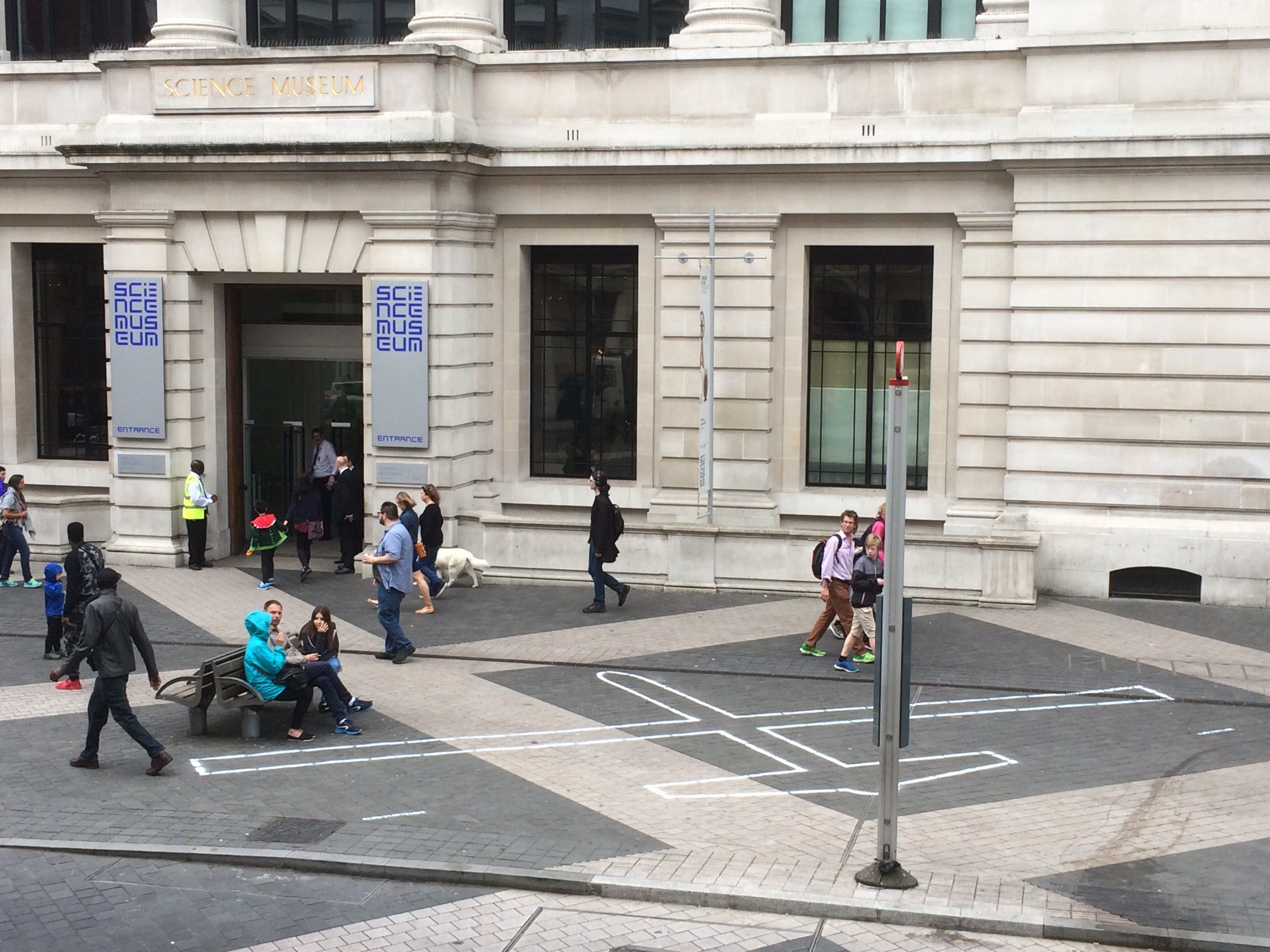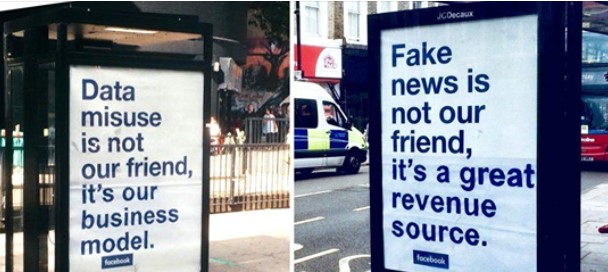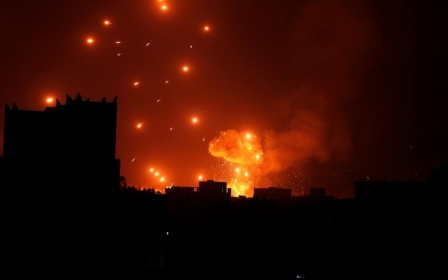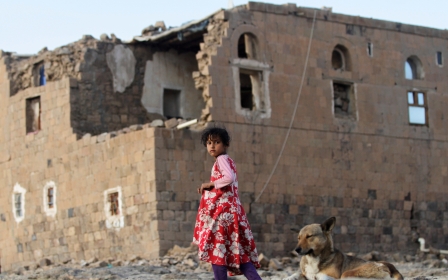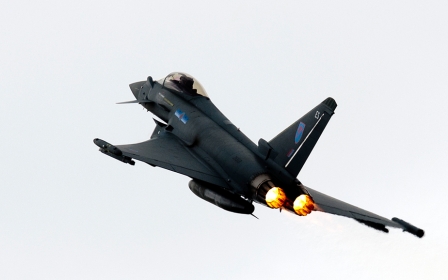Street art group withdraws from museum exhibit over arms dealer sponsorship
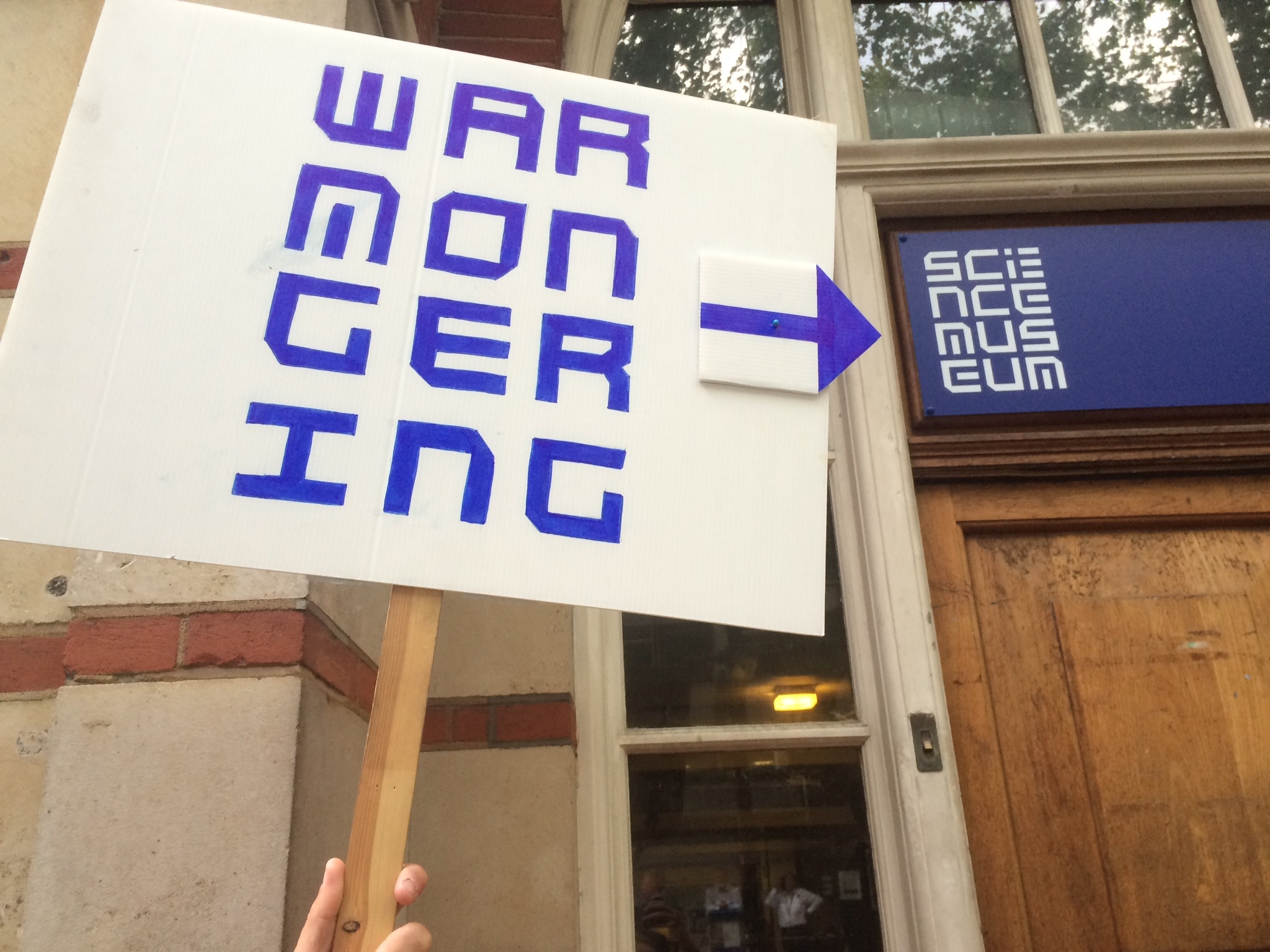
Street art collective Protest Stencil withdrew from a Science Museum exhibition on Wednesday after finding that a major seller of arms to Saudi Arabia was its principal sponsor.
Coinciding with the 100th anniversary of Britain’s intelligence agency GCHQ, London’s Science Museum has opened its "Top Secret" exhibition on Wednesday to explore the history of secret communications and tell the story of the spy agency.
The first-named sponsor of the event is Raytheon, a major US defence contractor and prominent seller of missiles to Saudi Arabia.
Weapons supplied by Raytheon were found by Amnesty International and Bellingcat to have been used by the Saudi-led military coalition to bomb civilians in Yemen since 2015.
Protest Stencil, an art-activist project collaborating with grassroots groups on a range of issues including the arms trade, has accused the Science Museum of engaging in “artwashing” of Raytheon’s record in involvement in human rights abuses.
New MEE newsletter: Jerusalem Dispatch
Sign up to get the latest insights and analysis on Israel-Palestine, alongside Turkey Unpacked and other MEE newsletters
It said that the museum was helping Raytheon improve its image by associating with a cultural event.
“Raytheon wants to distract from the death and destruction that is its business,” Ben, an artist and spokesperson of Protest Stencil, who only wished to use his first name, told Middle East Eye.
“Partnering with cultural institutions to ‘wash’ its brand is a key way to do that. The Science Museum should have no part in it.”
Raytheon’s UK spokeswoman has declined to comment on the accusations.
Protest Stencil had previously placed posters in London bus stop advertising spaces calling for the UK to stop arms sales to Saudi Arabia.
In 2016, the project protested the Science Museum’s hosting of a reception dinner for the Farnborough arms fair by drawing a "drone shadow" outside the venue.
According to Protest Stencil, it was approached by the museum in March requesting permission to use one of its posters from last year.
The poster was displayed at billboards across London as a fake Facebook advert, with messages like "fake news is not our friend, it’s a great revenue source".
“The museum wanted to use the poster as a modern illustration of data misuse,” said Ben, the poster designer.
He said that he agreed to display his work at the exhibition, thinking it was meant to raise awareness regarding the perils of social media and data capture, but later decided to withdraw the poster after finding out about Raytheon’s sponsorship of the event.
Last month, the British government announced it was banning all new arms sales licences to the Saudi-led coalition following a court ruling that the granting of licences was based on an unlawful decision making process.
The Court of Appeal said in its judgement that the government had failed to make an assessment of whether the weapons sale would contribute to violations of international humanitarian law.
Middle East Eye delivers independent and unrivalled coverage and analysis of the Middle East, North Africa and beyond. To learn more about republishing this content and the associated fees, please fill out this form. More about MEE can be found here.


